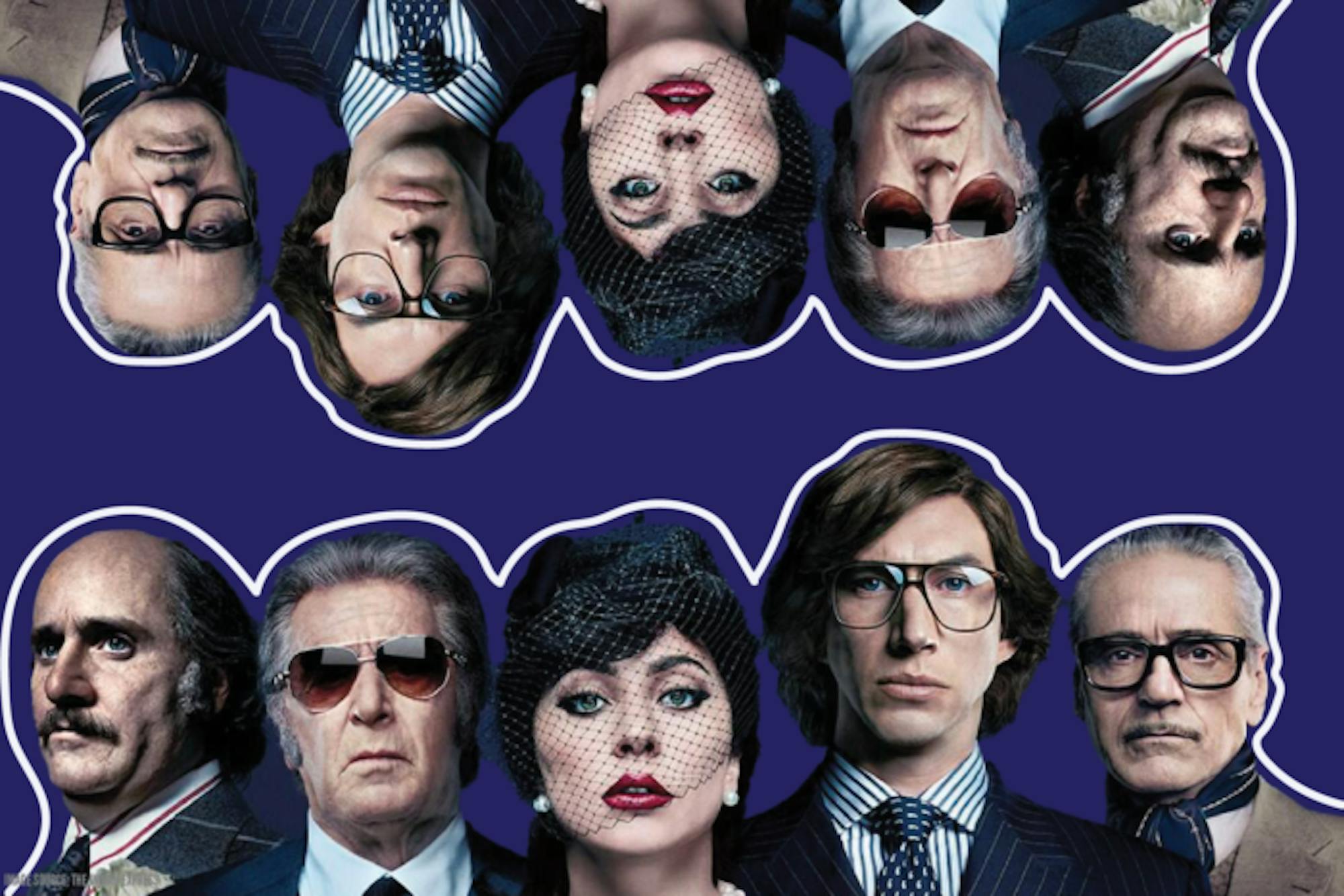
While researching one of my seasonal faves, “House of Gucci,” I was unpleasantly surprised to find that the Gucci family members (including a number of very-alive descendants and the infamous, directly involved Patrizia Reggiani) upon whom this “biographical” drama was based, had no involvement in this film whatsoever, in both monetary and — perhaps more importantly — storytelling terms.
Apparently, the producers explicitly asked Lady Gaga, Reggiani’s actress, to refrain from meeting her, as they don’t “endorse or support the awful crime” she committed. Personally, I find it difficult to reconcile the defense of the producers with the reality of the closed-case nature of the crime. “Extremely Wicked, Shockingly Evil and Vile” was not an “endorsement” of Ted Bundy, and even the ongoing prison sentence of Joe Exotic did not stop the producers of “Tiger King” from interviewing involved parties. Honestly, it feels more like the “House of Gucci” producers knew they could get away with the blatant disregard for common decency because the allure of a major luxury fashion house would guarantee their box office success.
In turn, Gaga stated that she has no interest in “colluding” with Reggiani — whatever that means for a crime Reggiani already served time and was released for — but her heart goes out to her daughters as she “care[s] deeply that this must be very painful for them.” Oh Gaga, why do you insist on having it both ways? Isn’t the public salivating over their trauma on the big screen the painful part? Quite frankly, I doubt Gaga “cares,” considering this role gave her a fat paycheck and the first acting award of her career.
According to Patrizia Gucci, Paolo Gucci’s daughter, the concerns of the surviving members lie in the lack of contact with Ridley Scott and inaccuracies in the book upon which the film is based; the creators are “stealing the identity of a family to make a profit.”
And really, director Ridley Scott’s borderline gleeful response is what truly hits it out of the park: “I don't engage with that. You have to remember that one Gucci was murdered and another went to jail for tax evasion so you can't be talking to me about making a profit. As soon as you do that you become part of the public domain.”
Despite his best attempts at making it appear otherwise, Scott’s comment is a value judgement. Because if we really get down to it, the entire point of the legal system is the protection of human dignity; convicts have rights (as so do the children they leave behind at the time of the crime), and private citizens don’t have authority to enact punishments on other private citizens (especially considering how, with the exception of Reggiani, all directly-involved parties are dead). And that’s the line Scott attempts to blur; committing crimes, regardless of how revoltingly fascinating, doesn’t erode an individual’s right to privacy. It doesn’t make them “public” citizens, much less their relatives.
(Obviously, there are exceptions for public safety, but Ridley Scott making this movie doesn’t factor into that algorithm whatsoever.)
And frankly, exploitation of the defenseless and legal loopholes isn’t mutually exclusive or mutually excusable the way Scott appears to believe. No, exploiting a family’s legacy for profit is wrong and a separate discussion from whether certain members have been to jail for tax evasion. No, Aldo Gucci’s illegal profiteering does not excuse Scott’s exploitative profiteering.
This entire affair has a certain sense of smugness to it, a sense that the creators are almost reveling in the Gucci family’s fall from grace. Denying the remaining family members the dignity of a voice may have been an attempt to “punish” the rich, but it’s also ironic, seeing as the cast and crew of “House of Gucci” are just as rich and decorated. Dear Lord, perhaps the conniving rich are secretly disdainful of one another as well.
Read More
Trending









